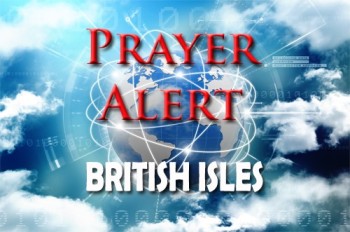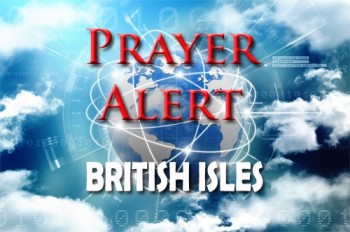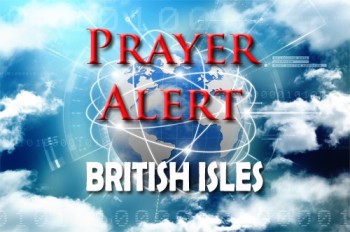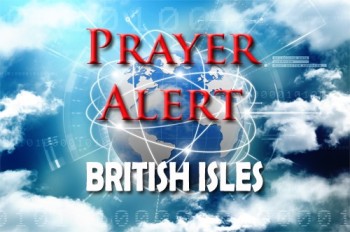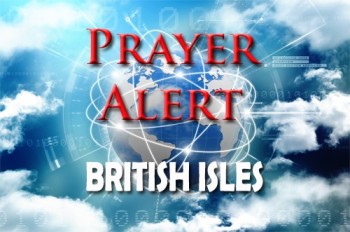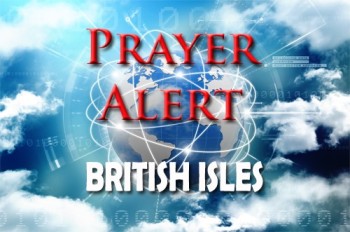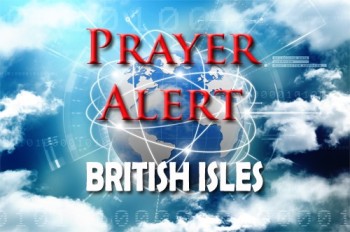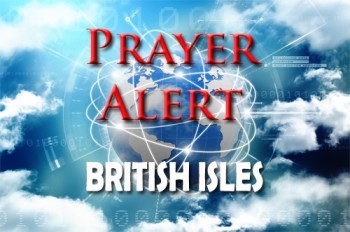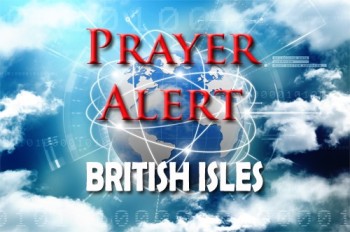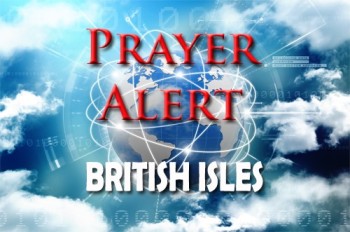Displaying items by tag: British Isles
Commonwealth Games: Christians in sport
‘God’s love for me doesn’t depend on how I perform’, says British athlete Adam Pengilly. Christian boxer Katie Taylor said, 'I actually don't know how people get through difficult moments without God in their life'. See During the Commonwealth Games, Passion for Sport will be in Birmingham hosting a special outreach exhibition featuring stories of eight Christian athletes. Three are reigning Commonwealth champions, one is a netball captain, and four are former athletes with great testimonies. Each athlete’s story is heard via a QR code link displayed in the installation. There are also visual creations of key moments from personal journeys. Pray for the success of this outreach installation, may it inspire and immerse people of faith and none into the world of Christian athletes. For 25 years, Passion for Sport has been reporting from major sporting events aiming to introduce sports fans to Jesus through comments, discussions and interviews with top Christian athletes sharing their faith.
Pray for our youth
This spring and summer across the British Isles, church members have been spending time and energy organising and preparing for youth camps and events in their locality. Now that the schools have closed for summer holidays, we can pray for the young people attending these camps. May they hear the Christian message in their hearts and not just receive head knowledge. Pray for an anointing from heaven to fall on every volunteer running these outreaches. Pray that they do not become fatigued physically or emotionally in the fast-moving environment of youth activities. Pray for God to renew their strength daily as they disciple their various age groups. Lord, be near this generation growing up in an era of stimulation, confusion, and social media. May You be the most real thing to them in a culture that offers temptation with things that look beautiful but are, in reality, empty.
Drag Queen story time for three-year-olds
Parents have concerns over ‘highly inappropriate’ drag queen story time sessions for children as young as three. The Story Hour summer tour starts next week, performing to as many as 3,000 three- to eleven-year-olds at sixty public libraries in England and Wales. The sessions include reading children’s books about same-sex relationships. Outraged parents wrote to their local councils expressing their concerns about the highly sexualised events. Their letters, co-ordinated by the Family Education Trust, say, ‘Drag shows are adults-only entertainment and not suitable for school-age children’. The letters also criticised promotion of radical gender ideology and stated, ‘To try to blind children to a most basic fact of human existence is a form of child abuse. Children who experience gender identity issues need careful and sensitive care, not wholesale indoctrination.’ In response Drag Queens organised online fundraising for ‘Mermaids charity’, which promotes puberty-blocking drugs and surgery for children who are confused about their gender.
Bishops’ voting options at Lambeth Conference
650 Bishops from across the Anglican Communion are debating at the Lambeth Conference if marriage is solely between a man and a woman. The once-a-decade conference ends on 8 August. There is now a three-way choice of voting options around homosexuality being incompatible with scripture. Originally bishops were asked to reaffirm a resolution of the 1998 Conference which considers homosexuality as ‘incompatible with scripture’. Now they can not only affirm it or abstain; they can vote against. This revised outlook has the potential to divide the church. A poll commissioned by the Ozanne Foundation found a clear majority of Anglicans believe that same-sex marriage is right, despite the church’s refusal to permit it. See
Our next Prime Minister
The two remaining candidates for leader of the Conservative party and our next Prime Minister are now criss-crossing the country engaging with party members and setting out their policies. This is a difficult and dangerous time for the UK. Boris Johnson lost his position primarily due to a lack of integrity and honesty - lack of ‘righteousness’. Proverbs 14:34 says, ‘Righteousness exalts a nation, but sin is a disgrace to any people.’ Whatever we may think of the candidates and their politics, we all must pray, as Paul exhorted Timothy, for ‘those in authority’ so that we may ‘live peaceful lives’. Scripture reminds us that even one person’s intercession can change God’s mind. The prayers of many affected the future of the UK during WW2. Today tens of thousands of people are praying over and for our ‘rulers’. We can trust Him to take all our prayers and through them reshape the future of our Government, Parliament, and nation for His purposes.
NHS crisis
An MP social care report said the large number of NHS job vacancies is a serious risk to staff and patient safety. England needs 12,000 more hospital doctors (it takes six years to train one) and 50,000+ nurses and midwives, in the worst-ever NHS workforce crisis. Current projections estimate a million new jobs will need to be filled in health and social care by the early part of the next decade. Extra staff will be needed to keep up with rising demands as the population gets older and healthcare becomes more complex and technologically advanced. The situation is compounded by the absence of a long-term plan by the Government to tackle it. 28% of staff experienced at least one incident of bullying or abuse in the past year. Sajid Javid said the Government was not on track to deliver its manifesto commitment to increase GPs in England by 6,000, and NHS pensions arrangements allow senior doctors to retire or reduce their hours and become better-off.
UK cities warned of wildfire risk
Last week's wildfires across London showed lessons learned tackling rural blazes must urgently be applied to built-up areas after grass fires spread to forty houses and shops nearby. Prolonged dry weather parching gardens, verges and green spaces followed by temperatures of 40C sparked blazes normally seen in the countryside. 500 wildfires have been reported so far this year, compared with 237 last year. The group commander for Hereford and Worcester Fire Service said, ‘Everything is bone-dry and services need to recognise the risk they've now got. If they don't, then they're naïve. There are very urban services that think wildfires are low down on the risk list. I understand their need to prioritise resources, but there must be a review.’ A 2021 risk assessment report for the government found that two out of eight fire services made no reference to wildfires in their risk management plans.
Two Christians running to replace Boris
Conservative MP Kemi Badenoch wrote in the Times, ‘I'm putting myself forward in this leadership election because I want to tell the truth.’ The Christian MP for Saffron Walden supports lower taxes to boost growth and productivity, and is accompanied by tight spending discipline. Her role as minister for local government, faith and communities included being the government’s liaison for the country’s faith leaders. She was born in Wimbledon, brought up in Nigeria, and has a range of faith traditions to draw upon. Tom Tugendhat, a Catholic, is MP for Tonbridge and Malling and chairman of the foreign affairs committee. He appealed to Boris Johnson on behalf of Nazanin Zaghari-Ratcliffe and asked UK churches to negotiate her release from an Iranian prison. As of 14 July, he is one of the five remaining candidates, but Kemi has been eliminated.
Prayer breakfast inspired Sajid Javid resignation
The outgoing health secretary, Sajid Javid, has said that being at the National Parliamentary Prayer Breakfast inspired him to quit his role. The Street Pastors founder Rev Les Isaac spoke about the responsibility that comes with leadership, to serve the interests of others above your own, and to seek common ground of your party, your community, and above all, your country. Sajid said, ‘It doesn't matter what your political perspective is, in this house. I believe that we are all motivated by the national interest, and that the public expects us all to maintain honesty and to maintain integrity in whatever we do. This is not an abstract matter.’ Rev Isaac said, ‘God gives His people the capacity to be compassionate, not living for themselves but for others, such as the weak and the poor, the marginalised, and those in distress.’
Praying for ‘our daily bread’ amidst food crisis
The UN secretary-general has warned that war in Ukraine, climate change, the pandemic and inequality have produced an ‘unprecedented global hunger crisis’ already affecting hundreds of millions of people. UK’s April inflation was the highest in forty years, food costs increased by nearly 9% and the number of foodbank users has doubled in the last year, but tonnes of produce have been ploughed back due to labour shortages. Jesus told us to pray collectively and daily for the Father to provide ‘our daily bread’ (Matthew 6:11). Pray for leaders working to combat the global food crisis, for all who are suffering drought and hunger, and for ourselves to be generous and give (Psalm 37:21). The Bible emphasises our dependence on, and gratitude to, God for our daily bread, stewardship of the earth, and respect for one another. But our priorities easily become skewed in favour of selfish gain.

